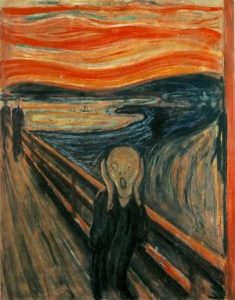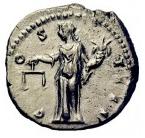All animals with nervous systems feel pain as a result of physical injury or the heightened tension caused by situations of serious danger, threat or stress.
In the case of human beings, the intelligent minds which enable us to deploy our full potential in favourable circumstances are no help in mitigating pain: indeed they act as an echo chamber that turns it into suffering.

The mind delves into pain and accentuates it by continually, uselessly speculating as to how long it will last, whether it will get worse, how much we can stand, what risks it may pose eventually to life itself, whether death is stalking us, how it may hinder us in carrying out the responsibilities that we have taken on and what consequences all this may have for those closest to us.
This is why Buddhism teaches that pain is inevitable, as an inherent part of the nature of living beings, but that suffering can be avoided if the mind’s great loudspeaker can be switched off. To that end, it teaches practices based on relaxation and meditation that call for great discipline and perseverance.

Combating suffering is also one of the goals of the Christian tradition, which offers prayer as a remedy; more as a mechanism for short-circuiting the mind’s processes than as an appeal to an unlikely miracle.
It is not easy to disengage the autonomous operation of the brain, accustomed as we are to letting it pilot our lives in its constant activity, of which we are largely unaware.
This is why science, and medicine in particular, has dedicated so much effort and achieved some of its greatest successes in understanding the mechanisms that generate pain and in developing ways of short-circuiting them.
Research in this field has been hugely successful. It is astonishing how far easily-accessible drugs can now go in eliminating the most common symptoms of pain almost instantly, and how effective they are in the most acute processes. The elimination or reduction of pain closes the door on suffering, making our lives more bearable, and as such is one of the great advances of our civilisation.
However, even today the proportion of the world’s population who continue to suffer is too high, and is proving hard to bring down.
Advances continue to be attained in medicine and pharmaceuticals, but economic recessions, natural disasters, injustice and warfare not only continue to provide seemingly inexhaustible sources of pain and suffering but also prevent large parts of the population from accessing remedies to them.
Even in Europe, where we have grown used to the state generously providing widespread medical care, some policies have had to be downgraded due to a lack of funding.
On the other hand, however incredible it may seem in such an advanced country, which leads the world in many areas, the the Obama administration in the US has had to fight a huge battle to try and provide the country with a reasonably public universal healthcare system.

Thus, an irregular, variable frontier in the struggle against pain can be traced across the surface of the world.
And where pain is most intense, suffering is king.
Summer is a time that seems more suited to the pursuit of pleasure, relaxation and rest than to pain and suffering, but it is also a time when we can step back and observe aspects of current life that go unnoticed during the academic year, among which there are a good many episodes of pain and suffering.
This summer several cases have been reported in the press of intrepid young people who have lost their lives in accidents while mountain climbing and bungee jumping. Over and above the pain that these tragic accidents have caused to victims themselves, in the time between the slip and the moment of death, the shadow of suffering that will stretch over their families forever is not hard to envisage.
The summer has also brought more news stories of crimes of passion and terrible murders which give rise to hellish, endless suffering. We have had our share of terrorist attacks inspired by radicalism too.
In such circumstances it is hard to follow the Buddha’s recommendations.
Witness to this can be borne by the families of the passengers of Malaysia Airlines flight 370, which disappeared without trace in the Indian Ocean over a year ago and wreckage from which is said to have been found on Reunion Island. The same goes for the families of those who died in the Barcelona-Dusseldorf flight that was deliberately crashed into a mountain in the Alps by its pilot last spring.
There are also many people who live with pain caused by less high-profile, less scandalous circumstances, but that does not mean that they suffer any less.
Over and above catastrophic events, our day-to-day lives are filled with little pockets of injustice, social marginalisation, poverty, people smuggling, disability (often exacerbated by bad luck), violence and abuse of power which provide fertile soil for pain and suffering.
We generally only learn of such situations through statistics, but they are real, ongoing, intense hotspots for frustration, pain and suffering both individually and collectively, for direct victims and their families alike, and we seldom pay them the attention that they deserve.

This is why any society worthy of calling itself democratic and progressive needs to make combating pain and suffering one of its priority goals, in regard not just to conventional healthcare but also to all the aspects of public administration that govern our lives.
It is possible to fine-tune legislation, but it will inevitably fall short of stopping all deliberate malevolent actions by human beings.
Teaching is therefore essential. Our education system provides an excellent base for teaching that suffering can be relieved if we take fuller ownership of the engines of our own minds and strive to achieve the difficult task of disconnecting their power supply when they start revving too fast.
It also provides a foundation for teaching the importance in the administration of rigorously applying a protective shield of universal justice that is equal for everyone.
These tasks are never-ending.
We have a lot of unfinished work in this area. The current legislature in the Basque Country is a good example of how painstakingly we need to work to break through the layer of suffering left in a great many families by the violence in our recent past, to rebuild a scenario of mutual trust in society and bring out the will to share a common future.
When a child scrapes his knee while playing in the park, a hug from his mother suffices to banish suffering. But as we grow up, pain and suffering all too often become chronic, etching deep (though not always visible) lines into our faces.
We can all do more by looking closer, by striving to look past the layer of emotional cosmetics that we all wear to see the true pain and suffering beneath that we ourselves and everyone else feel.
There are too many people like the woman in the song “Iluntzean” (“At Dusk”) by Basque group Ken Zazpi, who “day after day applies too much make-up, trying to hide the suffering in her face […] and at dusk imagines herself surfing away from suffering over the waves of Mundaka”[1]
This article was originally
published in the Basque daily newspaper Deia on 2 October 2015 and the
online version can be found on the paper’s website here.
[1] “Egunero bezala, gehiegi pintatzen da, aupergiko sufrimendua estali nahiean […] Mundakako portuan zigarro bat eskuan urrutira ihesi doa olatu gainean”.
